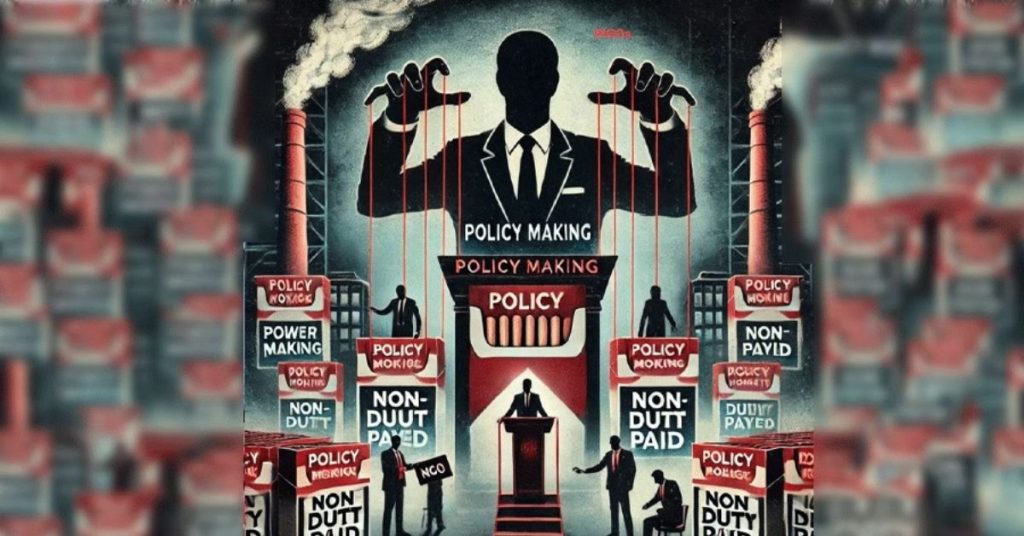
ISLAMABAD: Chairman of Fair Trade in Tobacco (FTT), Amin Warraich, in a detailed conversation with the media, rejected the recent statements made by the World Health Organization (WHO)’s representative in Pakistan regarding tobacco control policies and the taxation system. He called them one-sided, baseless, and disconnected from ground realities.
Amin Warraich began by questioning the statistics presented by the WHO official. “We must ask, on what basis is the claim made that tobacco-related diseases cause 164,000 deaths annually in Pakistan and that the economy suffers a loss of PKR 700 billion? Where is this data from? What’s the audit trail? This is a narrative shaped by a network of a few NGOs, funded by banned international organizations,” he said.
The WHO representative portrayed the increase in tax revenue in 2023 as a success, they failed to mention that the legal industry bore the brunt of this, which is now shrinking due to illegal trade. He stated.
“They highlight that revenue has increased, but fail to mention that the market share of illegal cigarettes in Pakistan has exceeded 56%. How can any serious policy dialogue ignore this reality?” Warraich questioned.
According to sales and enforcement reports and market surveys, out of 413 cigarette brands sold in Pakistan, 394 violate the Federal Board of Revenue’s (FBR) track-and-trace system, while 286 brands do not comply with the Ministry of Health’s graphic health warning law.
Warraich also criticized repeated calls for increased taxation. “When enforcement is weak, excessive taxation does not reduce smoking but rather drives consumers toward cheaper, illegal alternatives. This harms the legal industry, increases tax evasion, and empowers criminal networks.”
He accused several local NGOs, allegedly funded by banned foreign entities, of only targeting the legal sector while remaining silent on the more than 40 companies involved in illegal activities.
“This silence is not only suspicious but appears to be part of a deliberate strategy,” he claimed.
Blaming international organizations for ignoring Pakistan’s socioeconomic realities, he stated that the legal tobacco industry contributed nearly PKR 300 billion in taxes last year and provided employment to thousands. “To ignore this contribution and demonize the entire industry is not public health advocacy—it is a destructive approach,” he said.
Amin Warraich called upon the Government of Pakistan, the FBR, and the Ministry of Interior to investigate the real motives and sources behind such narratives. “We believe in policies based on local ground realities, verified data, and independent decision-making. We welcome regulation but reject so-called health policies driven by foreign agendas,” he stated.
Reaffirming his support for evidence-based policymaking, a fair tax system, and strict action against illegal cigarette manufacturers, he concluded.






